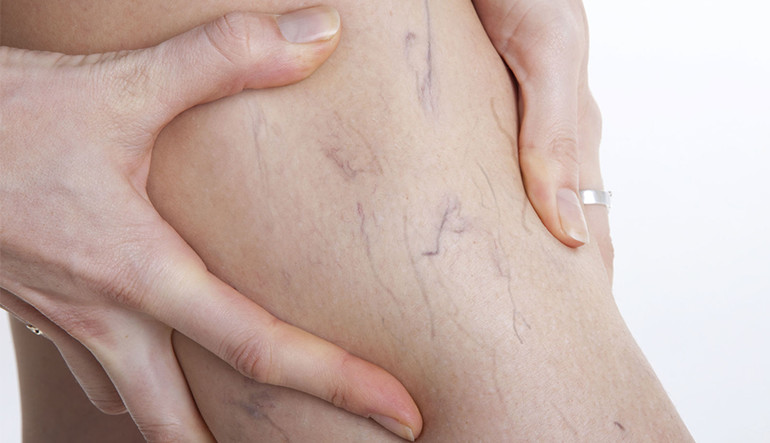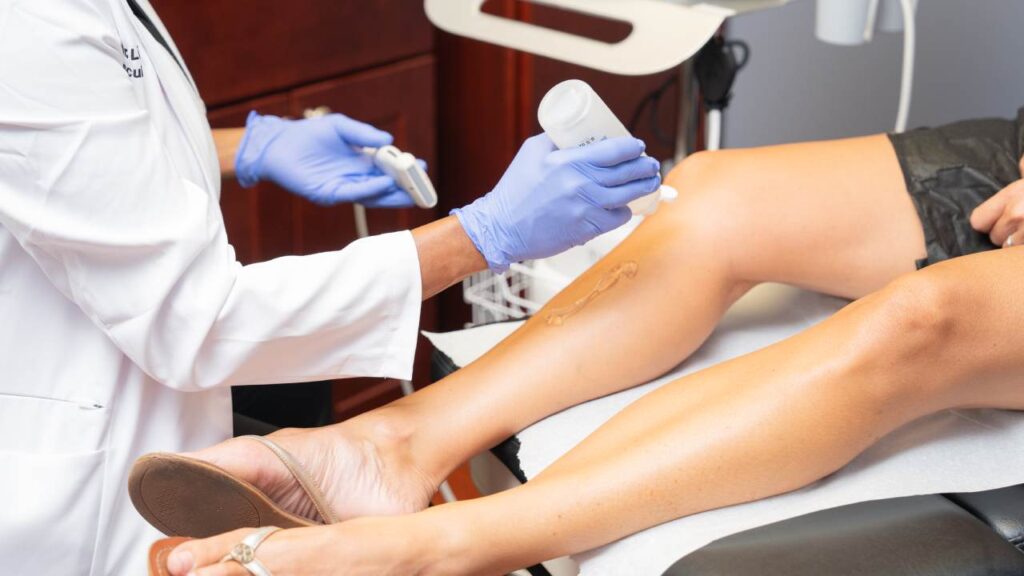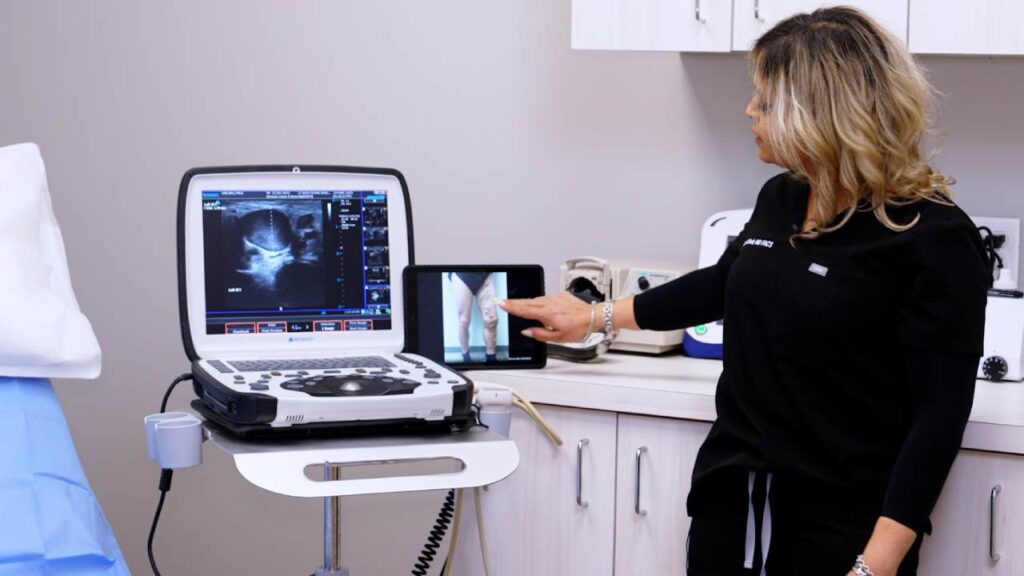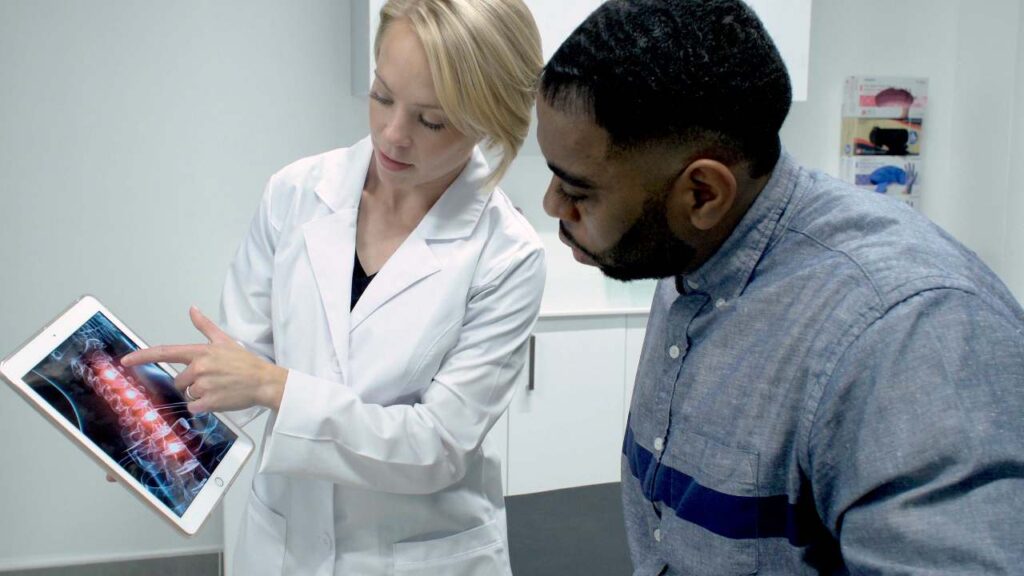Does Insurance Cover Spider Vein Treatment?
People often believe that spider veins and varicose veins are merely cosmetic problems with no medical significance. But that’s not true and it can even be a fairly dangerous assumption, especially since spider veins and varicose veins are often caused by a circulatory disorder known as venous insufficiency.

Chronic venous insufficiency is a condition in which your vein valves malfunction, which causes blood to flow backward and pool in your leg veins. This leads to vein dilation, which is why you get spider veins and varicose veins in your legs. While spider veins are often just cosmetic in nature, they may also be indicative of venous insufficiency. That’s why it’s important to seek diagnosis and treatment the moment you identify spider veins or varicose veins.
Now, when it comes to treating varicose veins, you may have concerns regarding the cost. The cost of treatment can be pretty expensive for some people so you may be wondering if it’s covered by insurance. And that’s what we discuss in this article — does insurance cover spider vein treatment?
When Does Insurance Cover the Cost of Spider Vein Treatment?
Spider veins are red clusters of blood vessels that appear on the surface of your skin and they look like spider webs, hence the name. As mentioned previously, spider veins may or may not be caused by underlying venous insufficiency. While spider veins aren’t medically dangerous in isolation, venous insufficiency certainly is a dangerous medical condition.
If you don’t treat venous insufficiency promptly, you may suffer from other complications like the formation of varicose veins, swollen ankles and feet, skin diseases, the formation of leg ulcers or non-healing wounds, and the formation of blood clots inside your veins. The latter of these conditions — blood clots in the veins — is known as deep vein thrombosis and it can even be potentially fatal if the blood clots break away and travel to the lungs.
When you detect spider veins, you should immediately consult a reputable vein treatment clinic. The vein doctor will run an imaging test called Duplex Ultrasound that will visualize your underlying saphenous vein. This test will reveal if your spider veins are caused by deeper vein disease.
If you are not suffering from vein disease, then insurance will not cover the cost of spider vein treatment. However, if your spider veins are merely symptomatic of venous insufficiency, then you can get insurance coverage for vein treatment.
Insurance Coverage for Spider Vein Treatment Options
We’ve discussed when you are eligible for insurance coverage for spider vein treatment. In this section of the article, we’ll discuss all the different spider vein treatment options available and whether you can get insurance coverage for them.
Radiofrequency Ablation
Radiofrequency Ablation is a procedure in which the vein doctor inserts a catheter into your diseased saphenous vein under ultrasound guidance. Once the catheter is in place, the doctor activates it to generate thermal energy that irritates the vein walls and collapses it, thereby restoring blood circulation to the heart.
This is a minimally-invasive non-surgical procedure that treats the underlying venous insufficiency so you don’t get spider veins anymore. It’s considered to be a medically necessary procedure and is eligible for insurance coverage.
Endovenous Laser Ablation
Endovenous Laser Ablation is a procedure in which the vein doctor inserts a catheter hooked to a laser fiber into the diseased saphenous vein. Once the laser fiber is in place, the doctor activates it to generate laser energy that immediately destroys the diseased vein and restores blood circulation to the heart.
This procedure is also considered to be medically necessary, which is why it’s eligible for insurance coverage. However, this procedure also causes more post-procedural discomfort than radiofrequency ablation, which is why it’s not the favored treatment option.
VenaSeal
VenaSeal is the latest procedure for varicose vein treatment. During this procedure, the vein doctor injects a medical adhesive or vein glue into the diseased saphenous vein. This glue seals the walls of the vein shut, thereby restoring blood circulation to the heart. The sealed vein eventually becomes scar tissue and gets absorbed by the body.
This is one of the latest and most effective treatments for venous insufficiency. However, it’s relatively new and not yet covered by insurance.
Sclerotherapy
Sclerotherapy is widely considered to be the best treatment for spider veins. While the aforementioned treatments are used for the underlying venous insufficiency, they don’t necessarily treat the visible spider veins. They simply treat the root cause so you don’t get more spider veins.
Sclerotherapy is generally used after the primary procedure is done to remove the spider veins on the surface of your skin. During the procedure, the vein doctor injects a solution into your spider veins to seal their walls shut. The accumulated blood reroutes to healthier veins and the vein eventually turns to scar tissue and gets absorbed by the body.
Sclerotherapy doesn’t generally get insurance coverage because it only treats the surface veins that are largely harmless, which makes it a cosmetic treatment. However, if you get sclerotherapy done in connection with one of the aforementioned treatments for venous insufficiency, the doctor can use some of the remaining medicine for your spider veins as well, at no additional cost.
Consult a Board Certified Vein Doctor Today
VIP Medical Group is home to some of the country’s finest board-certified vein doctors. We use the latest minimally invasive vein treatment options and we are also affiliated with all the leading insurance providers, so we can help you get the best insurance coverage for your treatments. For more information, please schedule a consultation with a board-certified vein doctor today.







